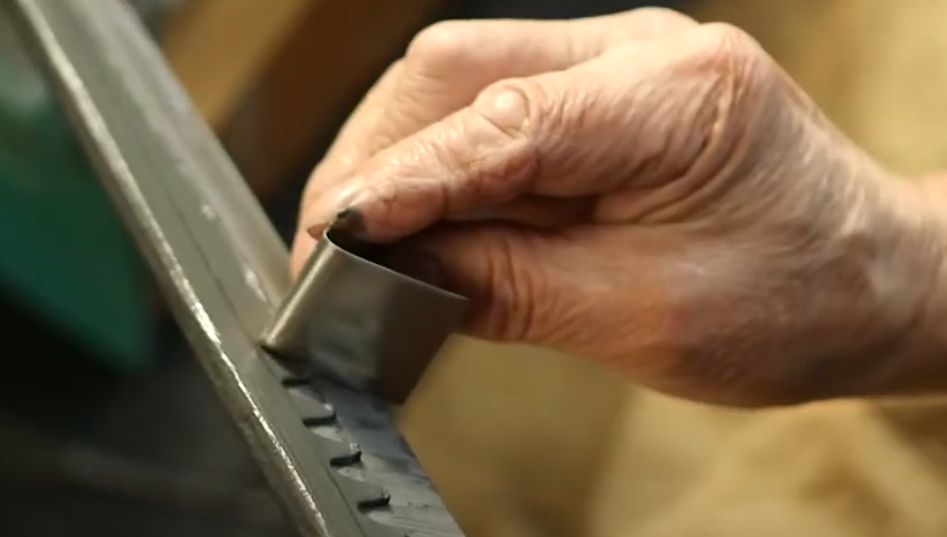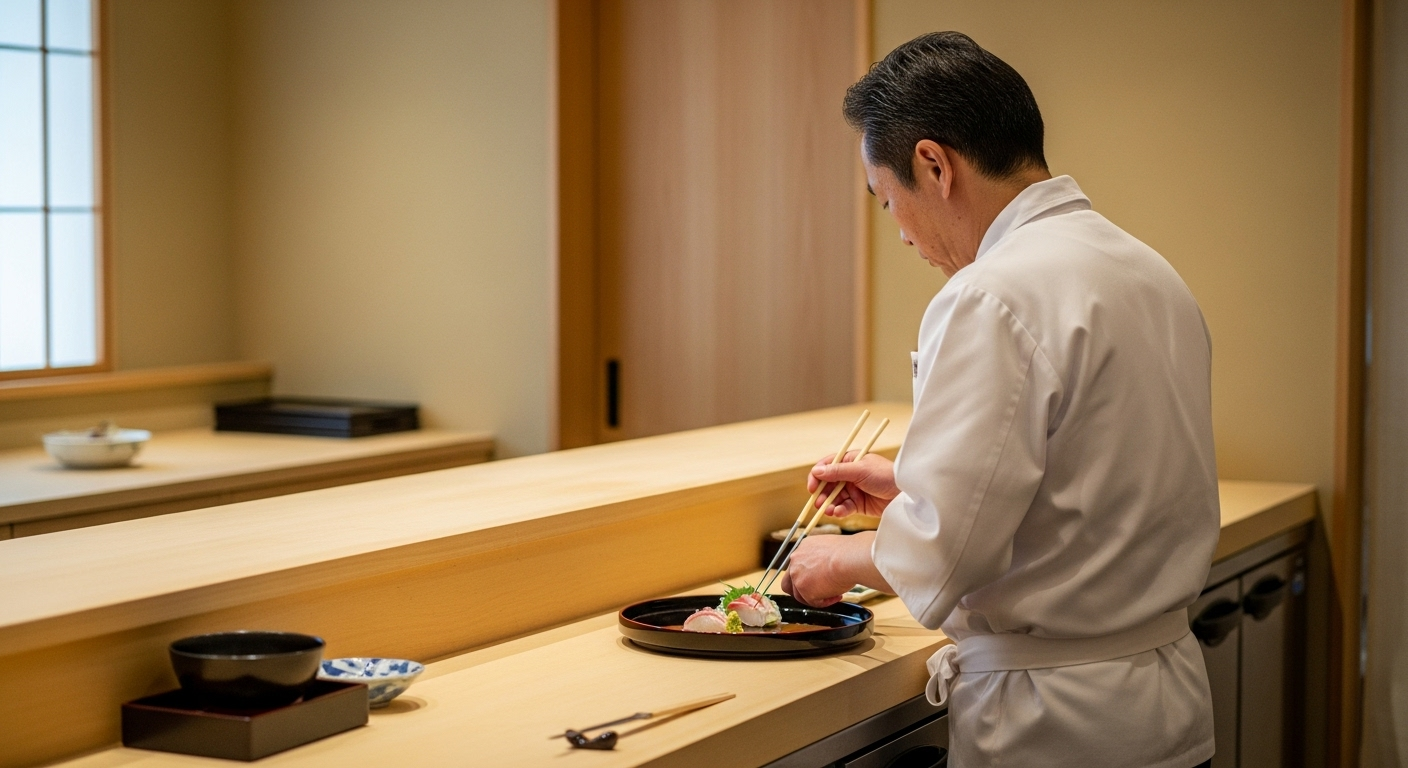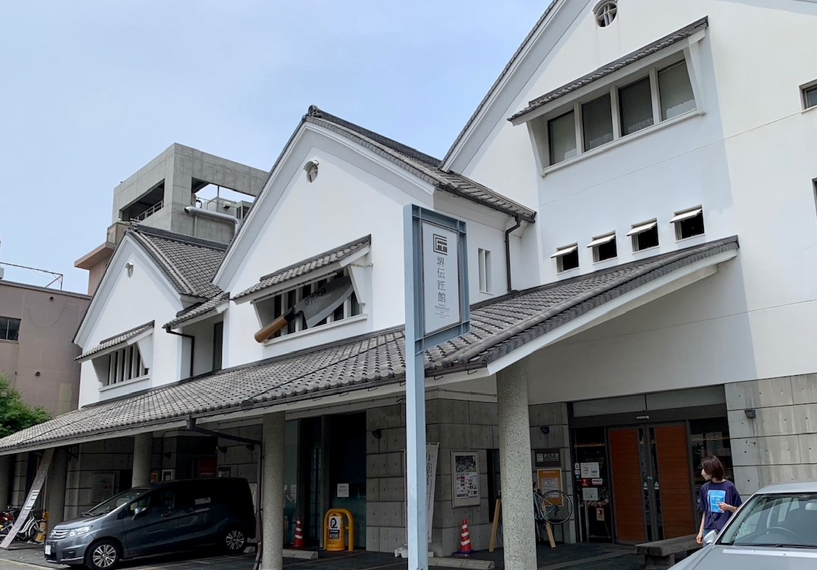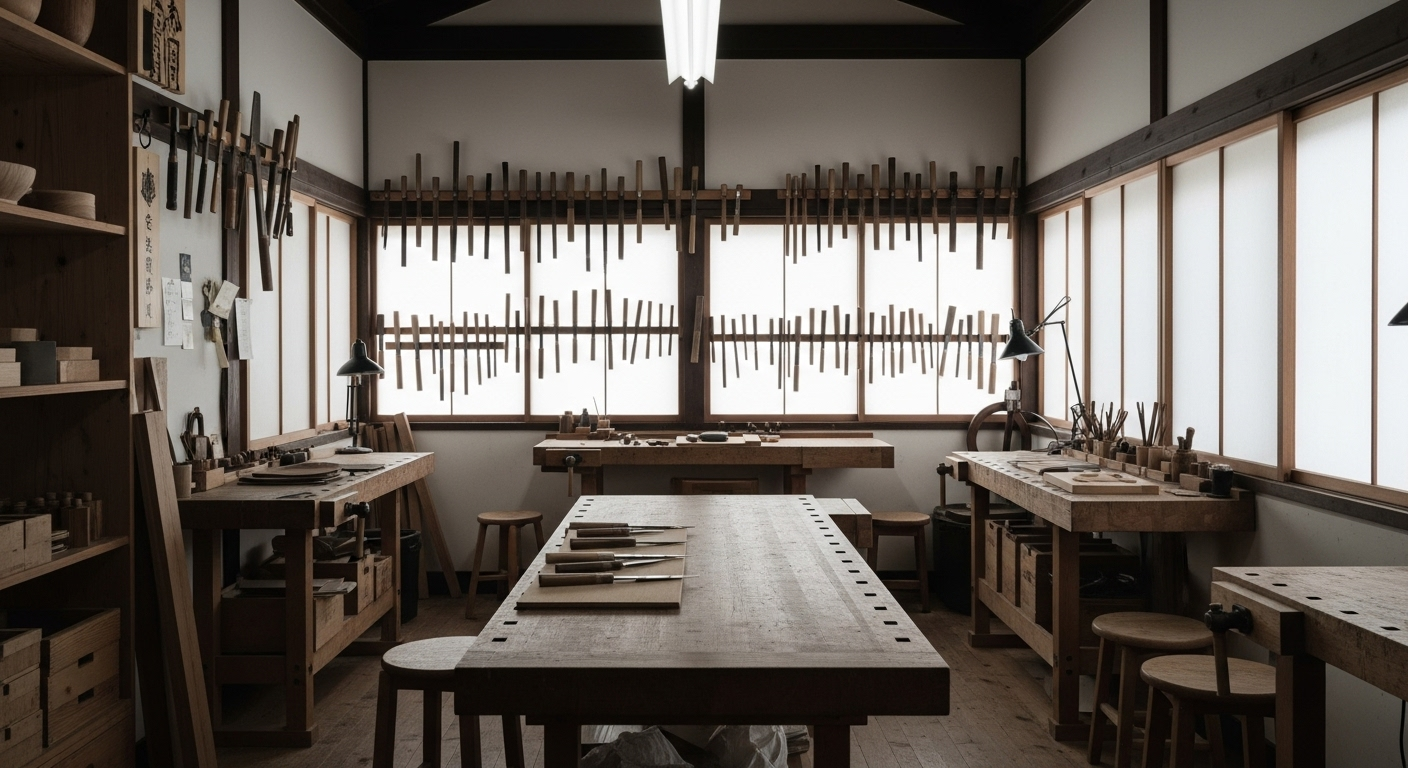
Shiroyama Knife Workshop
-
Discover the Spirit of Japanese Craftsmanship — Forged in the Heart of Sakai
In Sakai, a city with more than 600 years of blade-making heritage, one workshop has earned the quiet trust of chefs around the world.
For nearly four decades, Shiroyama Knife Workshop has dedicated itself to creating not just knives, but precision instruments that transform cooking into an art form.
Every blade reflects a meeting point of heritage and innovation — forged from ultra-premium steels, shaped by exacting heat treatments, and finished with mirror-polished brilliance.
This is the story of a workshop where skill, integrity, and respect for ingredients define every cut.
Step inside Shiroyama — and witness why true excellence in Japanese knives is not manufactured, but forged.
-
-
Craftsmanship Trusted by Professionals
— 40 Years of Shiroyama Knife Workshop, and Beyond
-
Located in Sakai, Osaka—a city with over 600 years of blade-making history—Shiroyama Knife Workshop has established itself as a trusted name, specializing exclusively in professional kitchen knives.
-

Through its original brands, “Shiroyama” and “Sakai Genpakuho”, the workshop delivers knives celebrated by chefs worldwide for their exceptional sharpness, durability, and refined beauty.
-

Innovation Rooted in Tradition
Shiroyama knives are forged from carefully selected steels such as Blue Steel (Aogami), White Steel (Shirogami), ZDP189, Ginsan, and the exceptional Super Steel (Honyaki) semi-stainless. Each material is chosen for its unique qualities, ensuring blades that meet the diverse needs of modern kitchens.
-
Among these, the Super Steel (Honyaki) stands out: semi-stainless for rust resistance, finished with a double mirror polish that blends striking beauty with professional-grade performance.
-

The Strength of Shiroyama
Shiroyama’s greatest strength lies in its ability to merge Sakai’s traditional forging techniques with the evolving demands of professional chefs.
Though its history spans just 40 years, continuous collaboration with generations of blacksmiths and sharpeners has refined its craftsmanship—earning the deep trust of chefs in Japan and around the world.“Born in Sakai, chosen by professionals.”
This phrase reflects a quiet philosophy: knives are more than sharp tools—they are partners in the pursuit of culinary excellence. -

Our Commitment to Excellence
At Shiroyama Knife Workshop, three elements define our craft:
- Superior steel
- Precise heat treatment
- Expert forging
A blade may appear simple, but every millimeter is intentional—designed to balance strength, sharpness, and control.
-
We apply the ideal hardening method for each steel:
- Water-hardening for Blue Steel and White Steel (Honyaki-Mizuyaki)
- Vacuum hardening and subzero treatment for ZDP189, Ginsan, and Super Steel
From material selection to finishing, each knife upholds the highest standard—delivering unmatched sharpness, durability, and reliability.
The Spirit of Shiroyama: Forged in Tradition, Chosen by Professionals
-

-
Why Professionals Choose Shiroyama
Shiroyama knives have gained global recognition through word of mouth among top chefs. They stand out because they offer:
- A perfect balance of sharpness, strength, and control
- An edge that feels like an extension of the chef’s hand
- Effortless performance with both delicate and demanding ingredients
Whether you are a Michelin-starred chef or a dedicated home cook, Shiroyama knives bring professional-grade excellence to your kitchen.

Mastering the craft, all for the customer’s smile.
In the end, we strive to create something better, driven by the joy and satisfaction we see in our customers’ faces.

The Master Craftsmen of Sakai Uchihamono
In Sakai, centuries-old techniques are carried forward by government-certified Traditional Craftsmen. Each knife is not just a tool but a living symbol of tradition, precision, and spirit—kept alive through their hands.

Why Do 98% of Japan’s Chefs Trust Sakai Knives?
For over 600 years, Sakai has perfected a unique craft where each stage—forge, sharpen, finish—is mastered by specialists. This tradition makes Sakai the birthplace of Japan’s most trusted knives.

The 98% Statistic: More Than a Number
According to the Sakai Tourism Bureau, “98% of Japanese chefs use Sakai knives.” This figure isn’t just a claim—it reflects the deep trust chefs place in Sakai’s centuries-old craftsmanship.

Sakai Uchihamono: 600 Years of Sharpness and Mastery
From forging to sharpening to handle making, every step in Sakai Uchihamono reflects a tradition perfected over six centuries—crafting blades renowned for their ultimate sharpness and artistry.

Sakai’s Dwindling Masters: A Legacy at Risk
Once the heart of Japan’s finest cutlery, Sakai now has only a handful of blacksmiths left. With rising competition and fading interest among the young, new markets and fresh apprentices are vital to survival. Supporting these craftsmen means safeguarding a 600-year cultural legacy.

The Soul of Craftsmanship
-
Honoring Tradition, Forging the Future
“Preserving the trust built by our ancestors and weaving it into the next hundred years—this is the mission that guides our craft.”
-
Knife-making is never mastered in a single lifetime. It is the accumulation of techniques refined through countless generations, bound together by trust. This legacy empowers our work today, and it is our duty as craftsmen to ensure it lives on.
-
A knife is not merely a tool—it becomes a companion for those who create with it. Sharpness, durability, and beauty are not just qualities of steel; they are the spirit of the craftsman, living on in the hands of its user. Each time we hear, “This knife cuts beautifully” or “It feels perfect in my hand,” we are reminded that the dedication of our predecessors endures.
-
With pride in our heritage, we continue to light the forge and hammer the steel, day after day. Each blade we create is more than metal—it is a bridge between generations, a lasting connection to the future. The spirit of knife-making does not fade. With every strike of the hammer, it grows stronger.
Our Story
-
Tradition of Sakai, in Your Hands
"Where can I find a truly great knife?"
We started KIREAJI to answer that question. While the number of skilled craftsmen is declining in Japan, many people overseas are seeking authentic blades. With that in mind, we carefully deliver each knife—bridging tradition and kitchens around the world. -





